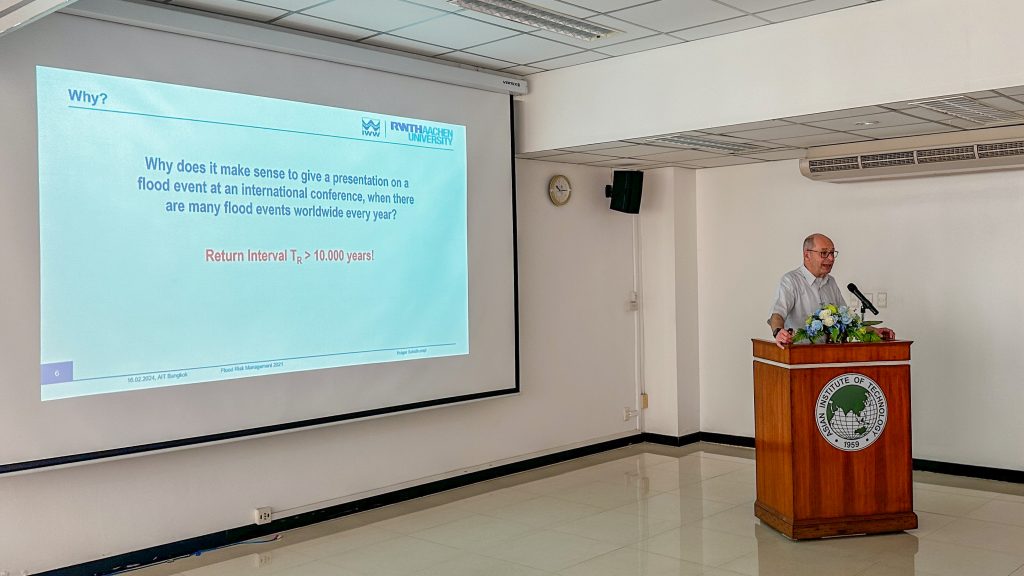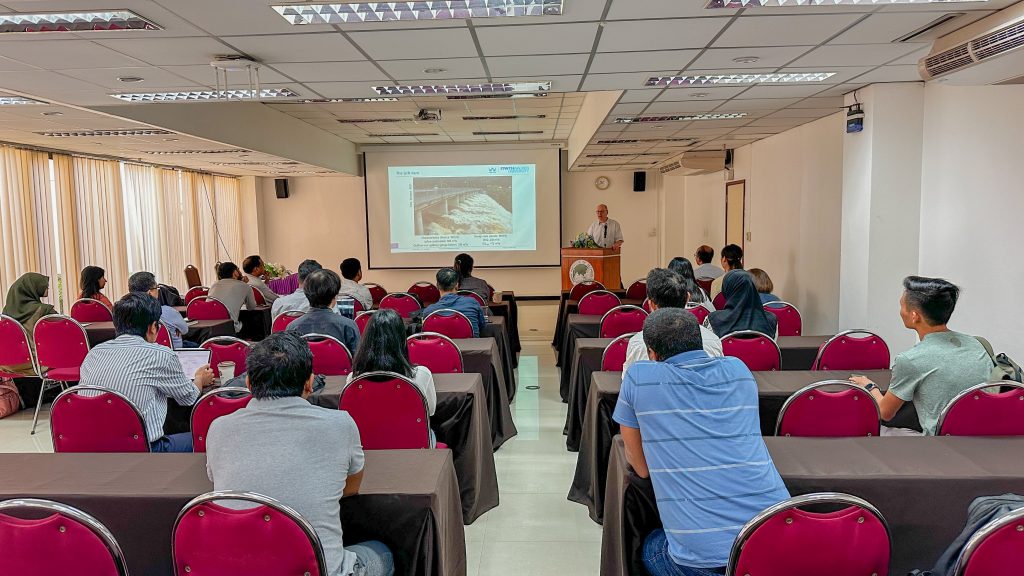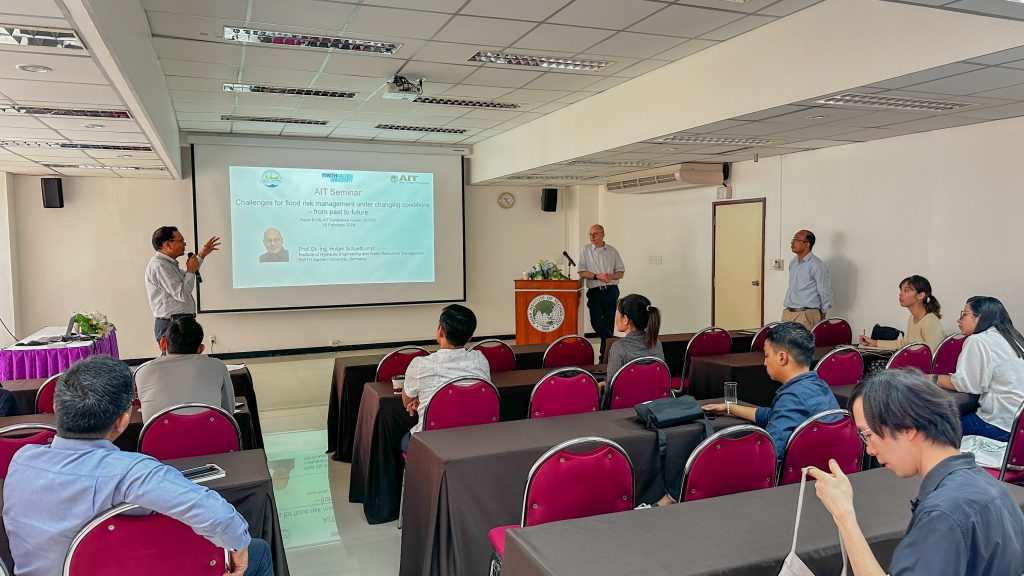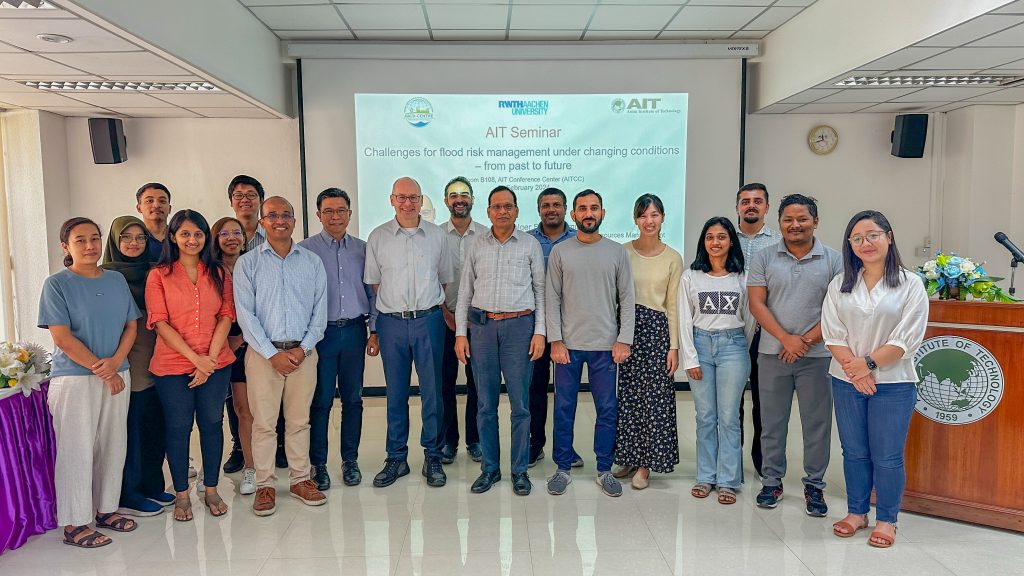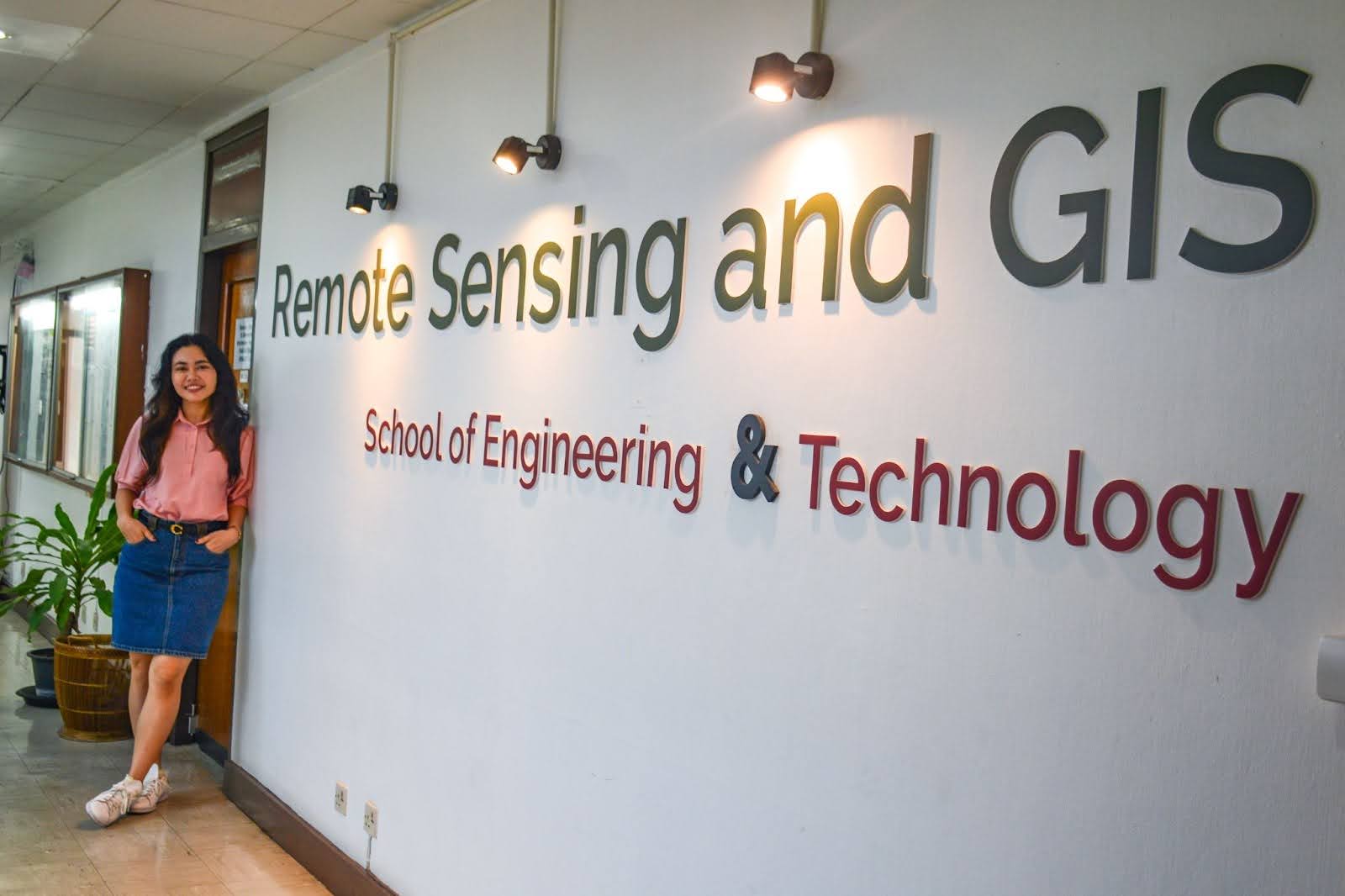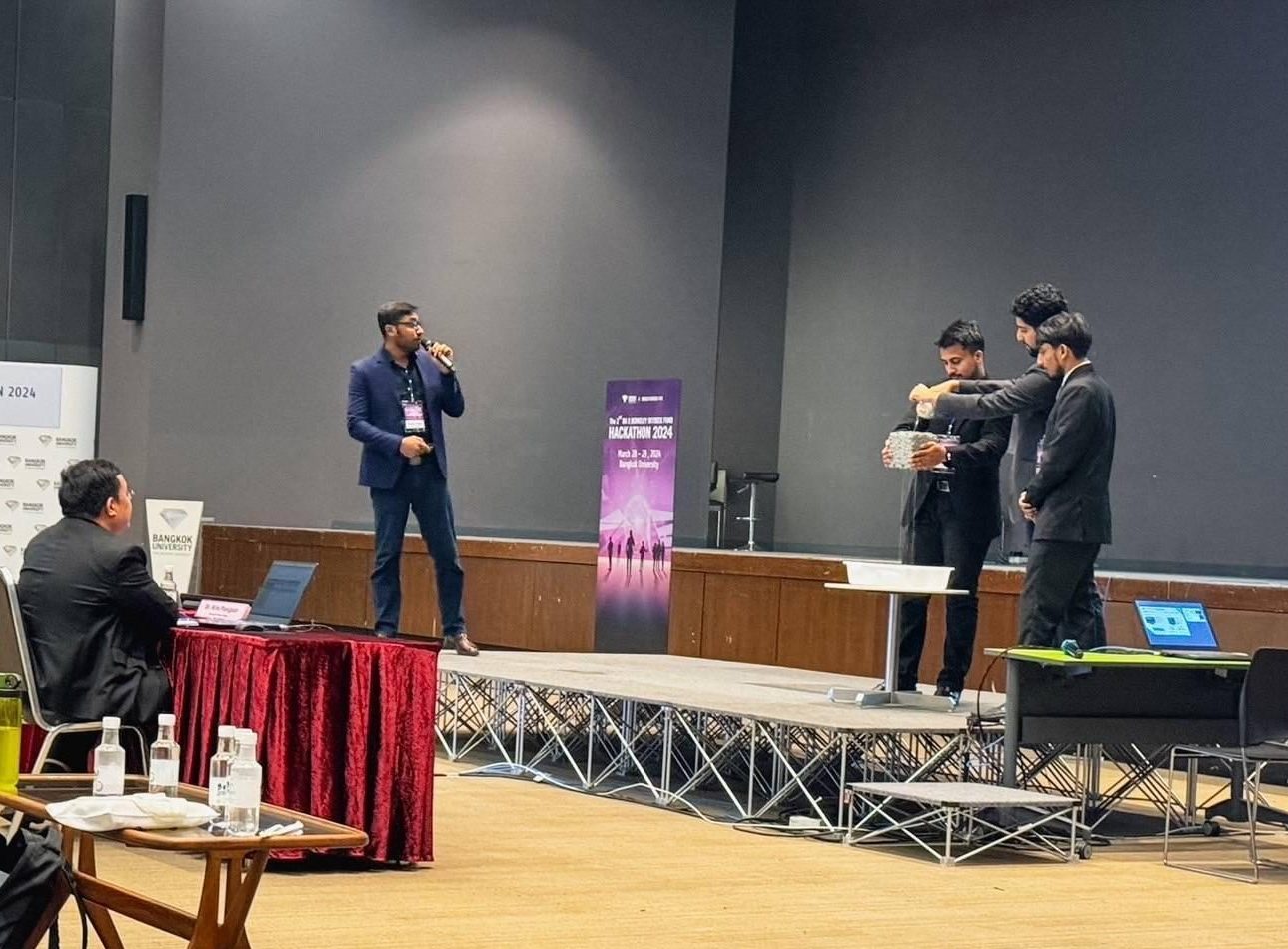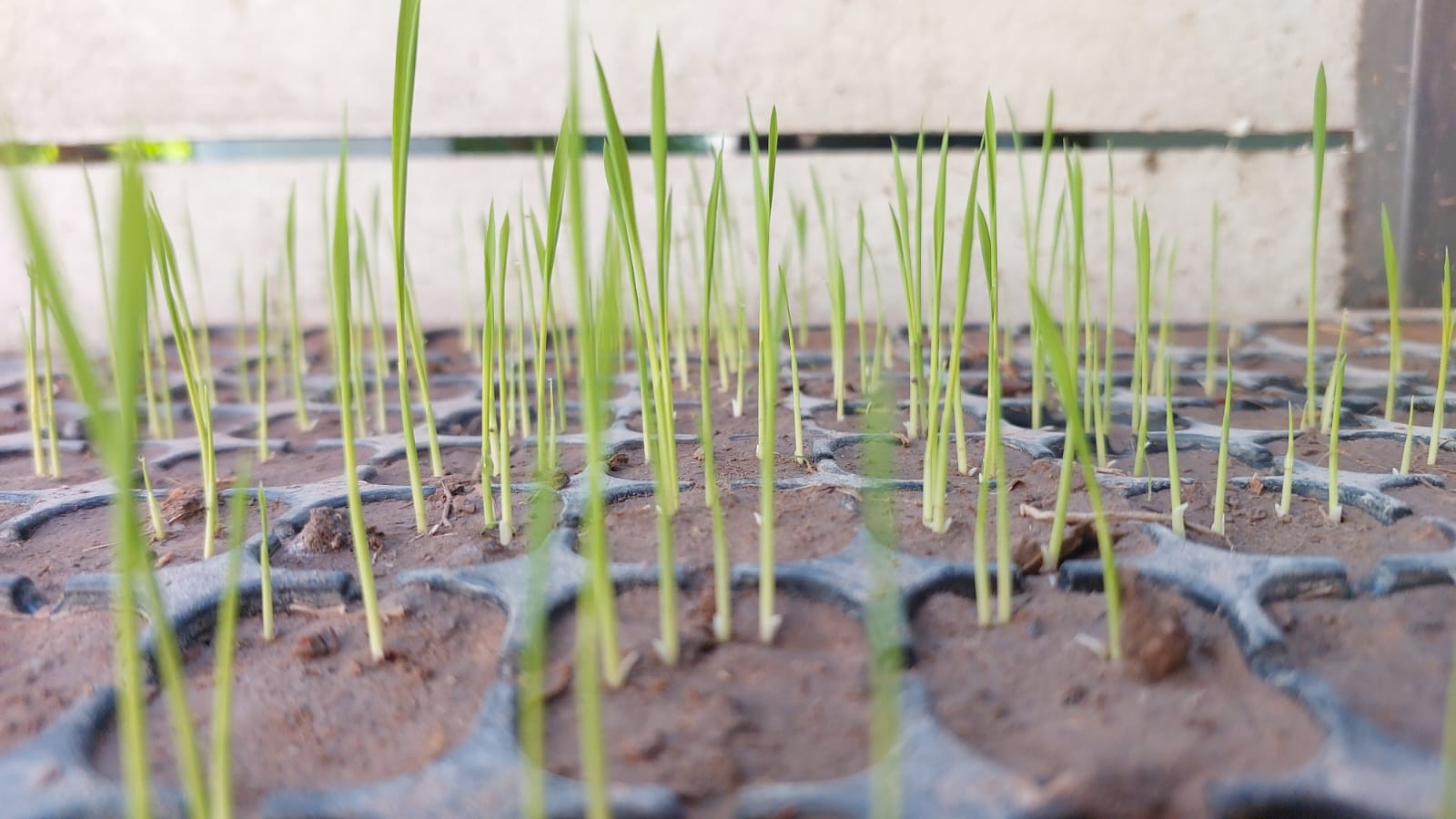19 February 2024: A delegation led by the Rector of RWTH Aachen University, Germany, Prof. Ulrich Rüdiger, recently visited the Asian Institute of Technology (AIT) to engage in collaborative discussions aimed at advancing social impact and innovation initiatives.
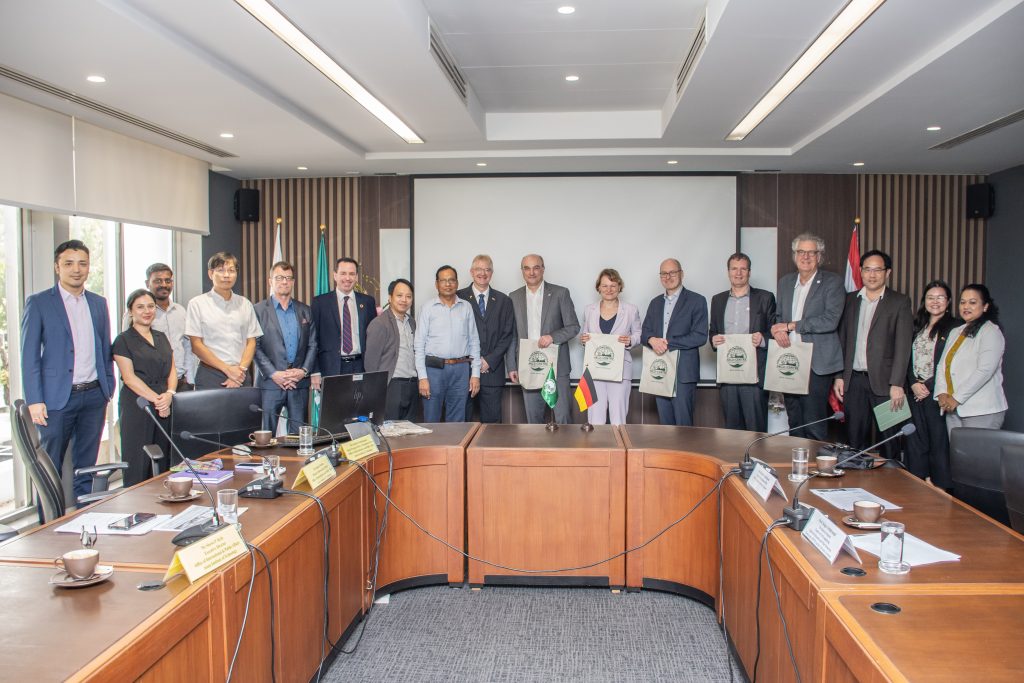
The delegation from RWTH Aachen included Dr. Henriette Finsterbusch, Director International Office; Prof. Holger Schüttrumpf, Vice Dean for Research, Faculty of Civil Engineering, Chair for Hydraulics and Water Resources Management; Prof. Klaus Reicherter, Chair of Neotectonics and Geohazards; Rector Delegate for India; and Prof. Dr. rer. nat Dirk Uwe Sauer, Chair for Electrochemical Energy Conversion and Storage Systems. The visit was a part of the Global Water and Climate Adaptation Centre: Aachen – Bangkok – Chennai – Dresden” project (ABCD Centre Project) funded by DAAD.
The delegate team met AIT’s Vice President for Administration (VPA) and several key officials on 19 February 2024. The meeting focused on fostering collaborative endeavors between AIT and RWTH Aachen. Discussions centered on international collaborations, research projects, joint programs, and digital learning initiatives. Project ABCD, a flagship collaboration between the two institutions, received particular emphasis, highlighting its social impact and digital advancements.
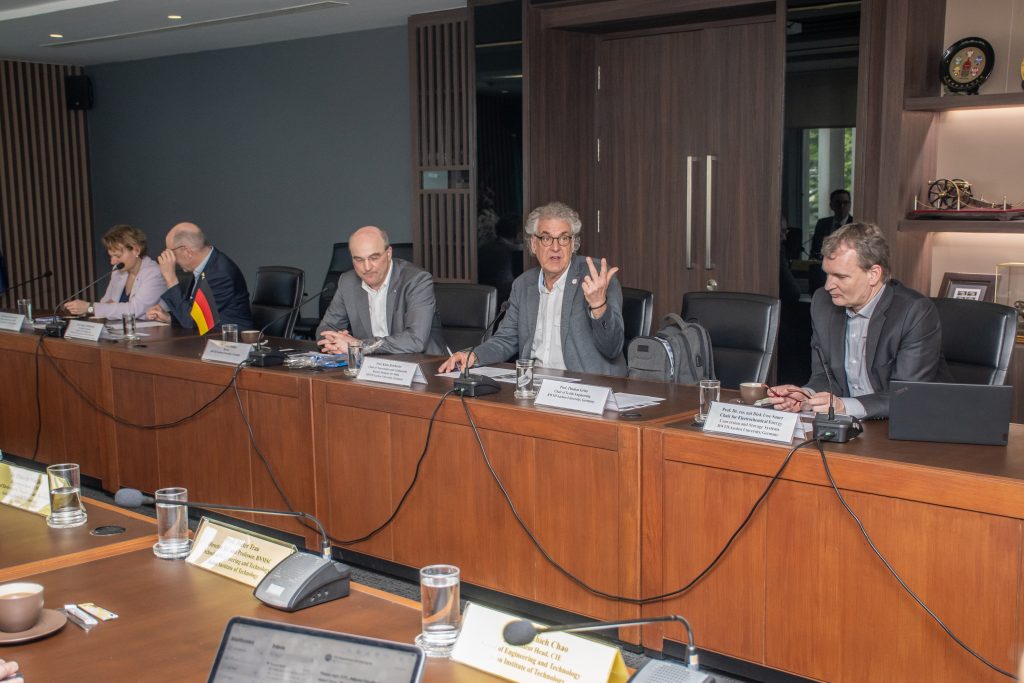
ABCD Centre Project is a five-year project (2021 – 2025) being jointly implemented by RWTH Aachen University, AIT, Indian Institute of Technology Madras (IITM), Technische Universität Dresden (TUD), and United Nations University – Institute for Integrated Management of Material Fluxes and of Resources (UNU-FLORES). The project aims to (i) establish a global hub for water security and climate adaptation, (ii) educate responsible future environmental leaders, and (iii) enable transfer through a new dialogue between science and global society.
AIT and RWTH Aachen officials outlined plans to establish joint programs, organize international conferences, and expand research initiatives, focusing on food production, energy efficiency, climate change adaptation, urban planning, and business analytics. The meeting concluded with a commitment to continued dialogue and follow-up meetings to solidify cooperative plans.
Mr. Russel Rein, Vice President for Administration at AIT, emphasized, “Our collaboration within the ABCD project exemplifies our commitment to social impact and innovation. We not only focus on what we do but also the transformative impact our work has on societies worldwide. We look forward to working with RWTH Aachen to drive positive change and create meaningful innovations that benefit communities globally.”
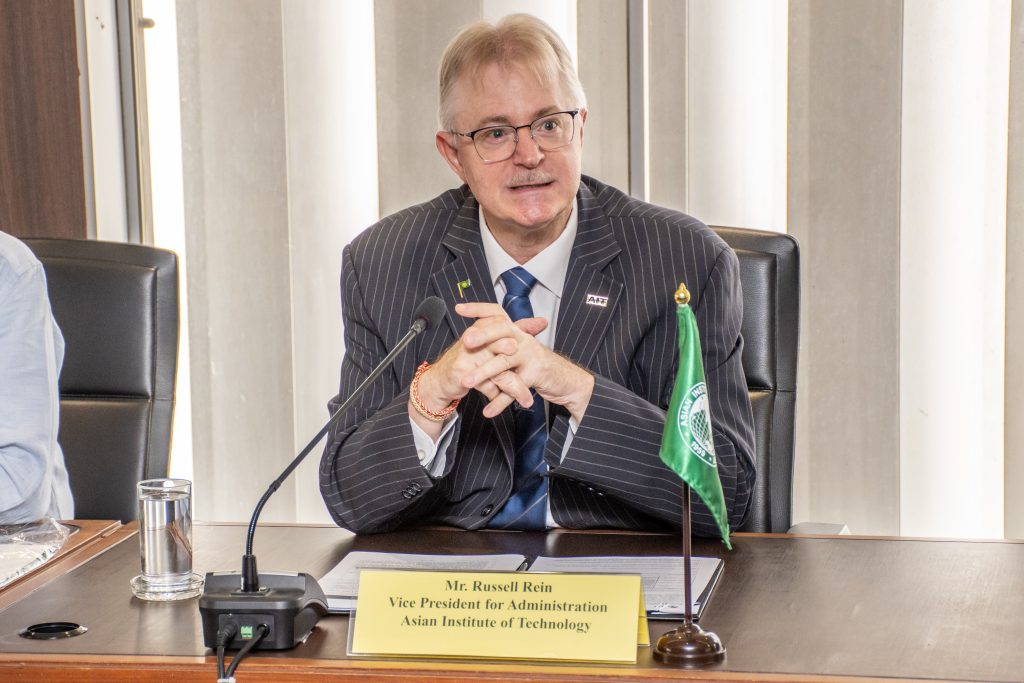
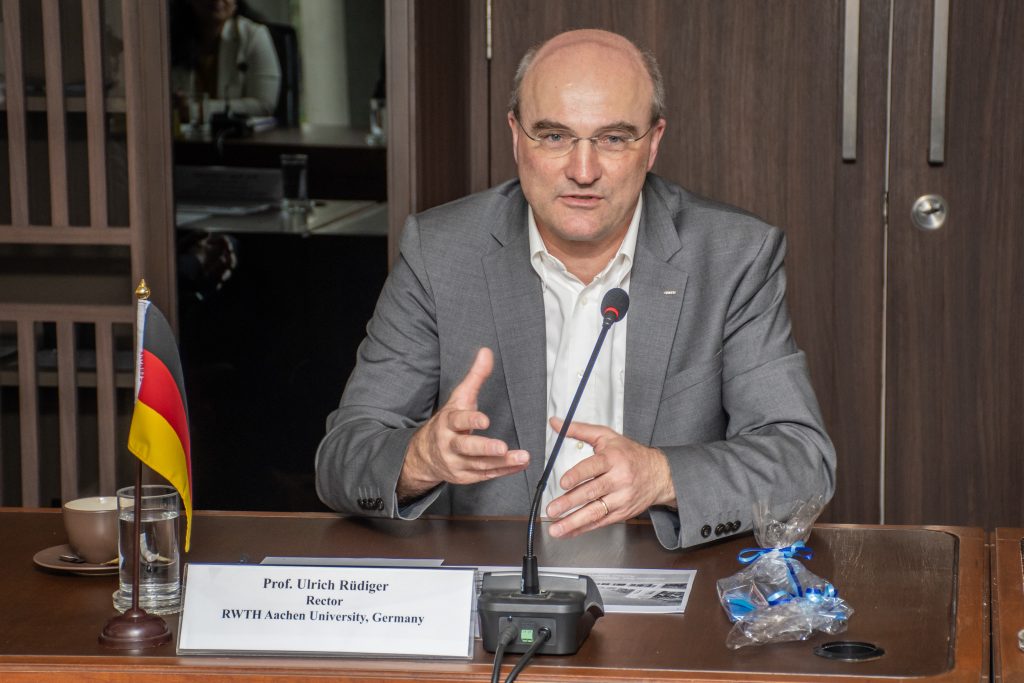
Prof. Ulrich Rüdiger, Rector of RWTH Aachen, expressed his admiration for AIT’s emphasis on social impact and innovation, stating that it also closely aligns with their values. He said, “Our commitment to fostering knowledge with real-world impact echoes the sentiment behind AIT’s ethos. We recognize the importance of interdisciplinary collaboration and networks in tackling the complex challenges facing society and the economy. By partnering with organizations like AIT and engaging with diverse stakeholders, we can collectively drive meaningful change and address global issues effectively.”
Prof. Mukand S. Babel of the Water Engineering and Management Program at the School of Engineering and Technology, who leads the ABCD project, highlighted its critical role in addressing urgent global water security and climate change challenges. He remarked, “The ABCD project has been pivotal in addressing pressing issues, deeply interconnected and relevant to our region and beyond, as we strive for a water-secure world. Our collaboration has yielded significant results, fostering optimism for future substantial positive changes through a partnership between AIT and RWTH Aachen.”
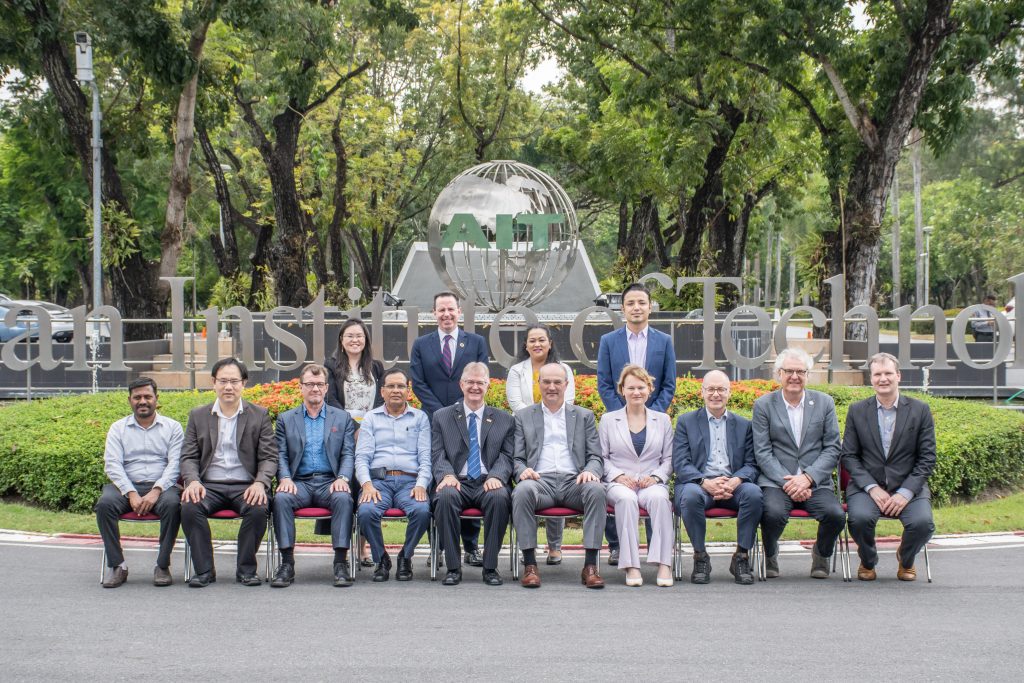
Other AIT attendees in the meeting were Prof. Thammarat Koottatep, Co-Director, GWSC; Prof. Dieter Trau, Director, EC and Professor, BNMSC/SET; Dr. Sarawut Ninsawat, ICT Department Head and Associate Professor, RS-GIS/SET; Dr. Ekbordin Winijkul, Department Head, EECC/SERD; Dr. Mohana Sundaram Shanmugam, Assistant Professor, WEM; Mr. Shawn P. Kelly, Executive Director, OIPA; Dr. Sumana Shrestha, Director, International Affairs, OIPA; Mr. Sanjeet Amatya, Director, Public Affairs, OIPA and Ms. Sirima Sirimattayanan, Senior Program Officer, International Affairs, OIPA.
Expert Insights on Flood Risk Management: Learning from Past Disasters for a Resilient Future
AIT also hosted a seminar titled “Challenges for Flood Risk Management under Changing Conditions – From Past to Future” on 16 February 2024. Prof. Dr.-Ing. Holger Schuettrumpf, from the Institute for Hydraulic Engineering and Water Resources Management at RWTH Aachen University, delivered an insightful presentation during the seminar that highlighted the intricate relationship and interactions between natural flood processes and human activities on flood disaster outcomes.
Prof. Schuettrumpf, a renowned expert in hydraulic and coastal engineering, waterways engineering, and water resources management, utilized the devastating flood disaster in Germany during the summer of 2021 as a case study to underline the critical need for a comprehensive understanding of flood dynamics and learnings from past disasters to better prepare for such events in the future. While floods are natural phenomena, the magnitude of the disaster during this event, estimated to have a probability of occurring once every 10,000 years, was magnified due to increased human activities and land-use changes. Prof. Schuettrumpf underlined the importance of early warning and evacuation, room for rivers, flood retention, and property protection for managing flood risks. The seminar was attended by over 20 participants, consisting of students and research staff at AIT.
